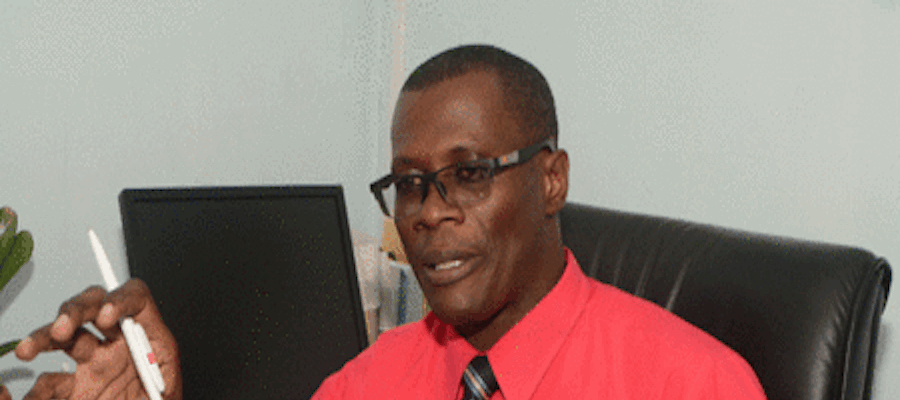Mental health authorities are reporting a 15 per cent increase in Barbadians being admitted to the Psychiatric Hospital as first-timers.
Director of the hospital David Leacock is so concerned about the situation, that he is appealing to their professional partners to refer people who show signs of mental illness, much earlier for treatment.
“If we can treat them in the community first, that is always advantageous. While we are seeing an increase, we would like more persons, for example, to seek services earlier so they can reduce the chance that they have to be admitted further down the line. So if we can get persons seeking mental health services a lot earlier, potentially we can reduce a lot of the new admissions coming to us,” Leacock told Barbados TODAY this afternoon.
“Over a five year period from 2013 to 2017, we would have seen a 15 per cent increase in our new admissions to hospital,” he revealed.
He noted that some people might go to their private doctors with a mental issue, but may not be referred to a specialist on time to avoid admittance to the Psychiatric Hospital.
“So we do try to encourage our private partners, private general medical practitioners, as well as the general public, if you see persons that potentially require mental health assistance, encourage them to get the help as earlier as possible, so they don’t end up having to become hospitalized,” the hospital director cautioned.
Leacock said while there has been no significant rise in the number of young people entering the Black Rock institution for treatment in recent times, the same cannot be said of the elderly population.
“We are seeing a number of persons with dementia-type illnesses that do find themselves ending up in hospital,” the mental health administrator told Barbados TODAY.
Leacock disclosed that authorities are now seeing an increase in homeless people, some of whom have mental challenges, shifting from Bridgetown and its environs to other commercial areas such as Warrens, St Michael and Oistins, Christ Church.
“Those areas are also seeing a high number of persons now who sometimes find themselves not having a home to go to, or prefer to live on the streets…because sometimes when persons are asked to live in the confines of a home, obviously there are constraints and rules to abide by. So some persons prefer to stay on the streets where they are their own bosses and can do as they like,” he stated.
Leacock said it is a challenge getting them the help they require since the hospital does not have the right to “pull” a person off the streets if they want to live there.
Turning his attention to the institution’s community mental health programme designed to reintegrate discharged patients back into mainstream society, the hospital director has reported a decline in re-admissions over the last five years.
“So for example, over a five-year period, we would have dropped from 10,800 visits on average in 2013 coming to hospital, to 8,387 visits in 2017,” Leacock disclosed.
As far as re-admissions are concerned, he said the figure stands at 970 people, having remained constant over time.
“And we have seen some minor decreases there as far as re-admissions to hospital as concerned.
However, the rate of people going to the Government-owned polyclinics for mental health treatment is on the rise.
Leacock said these are people who had never been to the Psychiatric before and needed help.
“We are seeing increased numbers in our mental health clinics. These are persons who are accessing mental health services at the polyclinics or outside of the hospital who have never been to the hospital before. So sometimes a person may go to the polyclinic having been referred by their GP [general practitioner] for mental health services. So we are seeing increasing numbers of persons accessing the service.
From that view point, definitely we are seeing an increased demand for the service,” he pointed out.
Leacock also told Barbados TODAY that the decline in the number of people who have been attending out-patient clinics at the hospital, have been picked up by those going to the polyclinics.
“We now see people in their communities…some we visit them in their homes; some come to the polyclinics. So the community visits for example, last year, we would have had over 10,500 persons coming to the polyclinics to be seen by our staff,” he stated.
For that same period, the hospital director said some 7,200 patients were seen in their homes, while 2,900 visited the mental health clinics.
He said these figures only represent the community services programme, which is manned by 16 nurses and three doctors.
emmanueljoseph@barbadostoday.bb




